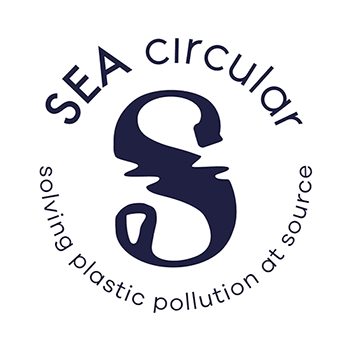
Thai Plastic Footprint Reduction Project identifies changes for reducing marine plastic pollution
Bangkok, 15 September 2021
The Solid Waste Management Association of Thailand (SWAT) organized an online Roundtable Workshop for their Plastic Footprint Reduction Project on 9 September 2021 in collaboration with SEA circular, an initiative of the United Nations Environment Programme (UNEP) and the Coordinating Body on the Seas of East Asia (COBSEA) funded by the government of Sweden.
The goal of this project is to reduce plastics at source via partnerships with the private, public and education sectors. This project focuses on the root causes of problems as more than 80% of marine plastic pollution comes from land-based activities, with the majority coming from Asia, including Thailand.
The keynote speech was given by H.E. Mr. Jon Åström Gröndahl, the Ambassador of Sweden to Thailand, and the address was given by Dr Isabelle Louis, UNEP Deputy Regional Director for Asia and the Pacific. They provided valuable insights and highlighted the need for collaboration and the important role private sector partners can play in tackling the plastic pandemic.
Five important sectors are involved with this project: plastics & packaging, food & beverage, hotel & hospitality, municipality, and education. The organisations include: SAPPE Public Company Limited, S&P Syndicate Public Company Limited, Doi Kham Food Products Co. Ltd., Cosmos Brewery (Thailand) Co. Ltd., TPBI Public Company Limited, Sitex Industry Corporation Co. Ltd., The Sukosol Hotel, Six Senses Hotels Resorts Spas, Wieng Theong Municipality, Mae Fah Luang University, Mater Dei School and Wat Soi Thong School.
Implementation of this project involved plastic footprint measurement training for members of the partner organisations and each partner organisation conducting a survey of their plastic footprint to identify baseline plastic footprints and areas for action. This was then followed by consultations to discuss possible solutions and shared learnings. The Plastic Footprint training and advice was provided by Mr Doug Woodring, Founder and Managing Director of the Ocean Recovery Alliance, an environmental organisation based in the US and Hong Kong who shared with us at this event the importance of measuring and understanding our plastic footprints.
The key results and findings were presented at the workshop by Dr Chindarat Taylor, Chair of the Plastic Footprint Reduction Project, and Vice President of SWAT. Rethink and redesign of packaging is happening, alternatives to plastics such as recycled plastics and biobased materials are being implemented, and enormous efforts in implementing the circular economy of plastics are being undertaken. This includes innovative collection processes for bags and cartons, reuse and recycling of production scraps, reuse and recycling in hotels, schools, and universities. A municipality is sending residual waste containing plastics to a cement factory for energy recovery. The private sector is playing a key role in this transformation in Thailand and beyond.
Collaboration is key to success and this project has brought companies together to speed up innovation, for example TPBI Public Company Limited and IRPC Public Company Limited are providing alternative solutions to some of the project partners.
There is an urgent need to develop more infrastructure to support the circular economy including more recycling plants for mechanical and chemical recycling, and composting facilities for biodegradable materials. Governments can play a vital role in introducing regulations and incentives in areas such as increasing the recycled content of plastics, source segregation of waste, and speeding up infrastructure development. Introduction of the Extended Producer Responsibility (EPR) would bring long term structural improvements in Thailand.
Dr Chindarat concluded her talk by saying that the future is in our hands and collaboration between companies, customers, suppliers as well as governments and municipalities is the way forward for reducing plastics in our oceans. The most important aspect is that change is happening and accelerating. We hope that the results of this project will continue well beyond the life of this project, influencing and catalysing transformation in Thailand in the years to come.
The partner organisations shared their experiences of plastic footprint reduction and showed their commitment to further improvements by working collaboratively with their customers and suppliers along the plastic value chain.
Prof. Dr Orathai Chavalparit, President of SWAT said that this workshop provided an excellent opportunity for partner organisations to share their experiences and learnings, which is important for future development and improvement.
Mr. Patarapol Tularak, the Project Manager, said that experts in key areas were invited to provide valuable insights on regulatory and economic measures to reduce plastic footprint at different life cycle stages, the circular economy policy in Thailand, packaging redesign and EPR. In his closing remarks, Mr Patarapol said that measuring and understanding our plastic footprint is the beginning of the journey for managing plastics better and minimising the plastics leaking into rivers and oceans. It is very important that we develop networks of organisations to work together and support collective efforts to reduce the plastic endemic in our oceans.

news
